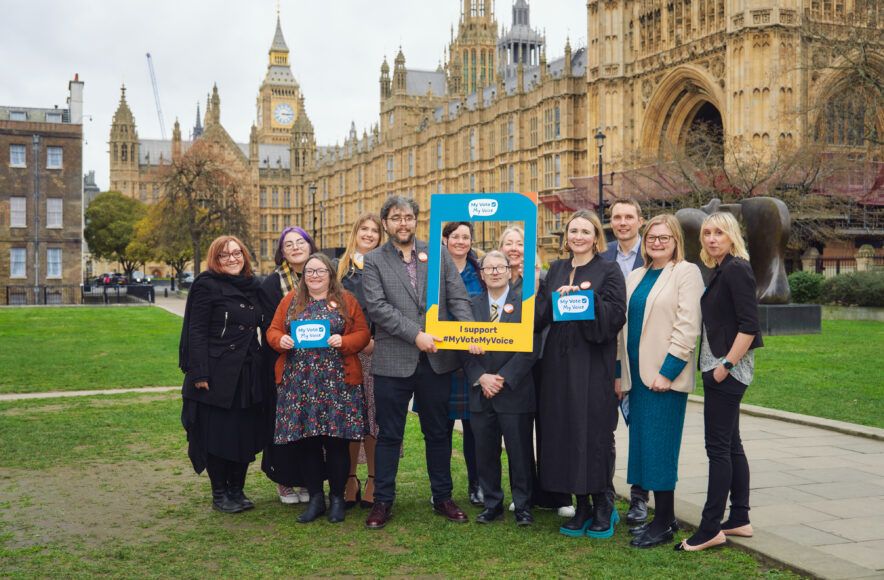UK General Election: Make 2024 an accessible voting year

2024 isn’t just an election year. It’s the election year.
Voters across 64 countries – including the United Kingdom – will cast their ballots over the next twelve months. More than 40% of the world’s population will use their democratic rights this year to have their say in who governs them next.
But not everyone will be able to exercise these rights.
The situation
For far too many disabled people, voting remains an inaccessible and often abstract process, not least for those living with hidden disabilities, such as autism and learning disabilities. From poor working knowledge of their needs to what’s often a last-minute addition of Easy Read editions of party manifestos, it isn’t hard to see why so many people feel disengaged from voting.
It’s certainly the case for my brother. At 28 years old, he has as much a right as I or anybody else to have a say in the decisions shaping his community. Yet for him, whose autism is far more profound than mine, the lack of readily available and digestible information about the choices on offer means that elections aren’t just confusing; they’re distressing. Something to endure rather than experience. I imagine it’s much the same for at least some of the 700,000+ other autistic people and over 1.2 million people living with learning disabilities in the UK.
It shouldn’t and doesn’t have to be this way.
The solution
My Vote My Voice is working to empower autistic people and people with learning disabilities to vote in the UK General Election on Thursday 4 July.
We’re achieving this by building a nationwide coalition of supporters to upskill these communities’ understanding of democracy and the importance of making their voices heard.
Here’s how you can support the campaign and help make it the most accessible election yet:
- Gáibhin McGranaghan is Lead Researcher at United Response and a spokesperson for the My Vote My Voice campaign.